Hey there! We're diving into an essential topic todayâconsumer protection warnings. It's crucial for everyone to be aware of their rights and the potential risks in the marketplace. Whether it's misleading advertisements or subpar products, understanding these warnings can empower you as a buyer. So, grab a cup of coffee and join me as we explore how to navigate these challenges effectively!

Clear subject line
Consumer Protection Warning: Important Information Regarding Your Rights and Safety Recent reports indicate widespread issues related to defective products that pose health hazards to consumers. Specific brands of kitchen appliances, identified by model numbers and purchase locations, have been linked to fire risks. Consumers have raised concerns regarding malfunctioning wiring that can lead to overheating. Regulatory agencies urge individuals who have purchased these items since January 2022 to report any incidents. Affected consumers may be eligible for reimbursements or replacements. Legal avenues exist for consumers experiencing loss or damage due to these products. Always stay informed about product recalls by checking official resources regularly.
Precise issue description
Consumer protection agencies often issue warnings about deceptive practices that impact individuals. For instance, misleading advertisements related to financial services can attract unwary consumers in cities like New York and Los Angeles. These advertisements often promise unrealistically high returns on investment, sometimes exceeding 20% annually, which can lead to significant financial loss. Scams may involve complex schemes or hidden fees that obscure the true cost of services. Consumers should be vigilant, especially when approached by unsolicited offers via email or social media platforms that seek personal information or upfront payments. Increased awareness and reporting suspicious activities can help mitigate risks for consumers statewide.
Legal references
Consumer protection laws, such as the Federal Trade Commission Act in the United States, prohibit deceptive practices in commerce. The Dodd-Frank Wall Street Reform and Consumer Protection Act also enhances consumer protections relating to financial transactions. In Europe, the Consumer Rights Directive ensures that consumers are informed about their rights regarding product returns and refunds. Specific legal articles, such as Articles 5 and 8 of the Directive, establish clear guidelines for transparent communication and the responsibilities of sellers. Awareness of these legal frameworks empowers consumers to advocate for their rights and seek remedies for any violations experienced during transactions.
Specific consumer rights
Consumer protection laws establish crucial rights for individuals purchasing goods or services. These laws, enacted in various jurisdictions, often include rights such as the right to receive goods that match the advertised quality and specifications and the right to fair treatment without deceptive practices. For instance, in the European Union, the Consumer Rights Directive empowers consumers with a 14-day cancellation period for online purchases, enabling them to return items without justification, ensuring satisfaction. Additionally, warranty clauses require manufacturers to provide repair or replacement for faulty products, emphasizing the importance of accountability. Understanding these rights can enable consumers to advocate for themselves effectively, deterring unscrupulous business practices.
Contact information for follow-up
The Federal Trade Commission (FTC) alerts consumers about potential scams impacting financial security and personal data protection. Following a rise in fraudulent activities across the United States, individuals are encouraged to report suspicious practices immediately. Consumers should document details such as the nature of the scam, the date of the incident, and any involved parties. For follow-up assistance, contact the FTC at 1-877-382-4357 or visit their online resource at www.consumer.ftc.gov. Detailed investigations into scams can prevent further victimization and protect community welfare.
Letter Template For Consumer Protection Warning Samples
Letter template of consumer protection notification for fraudulent activity
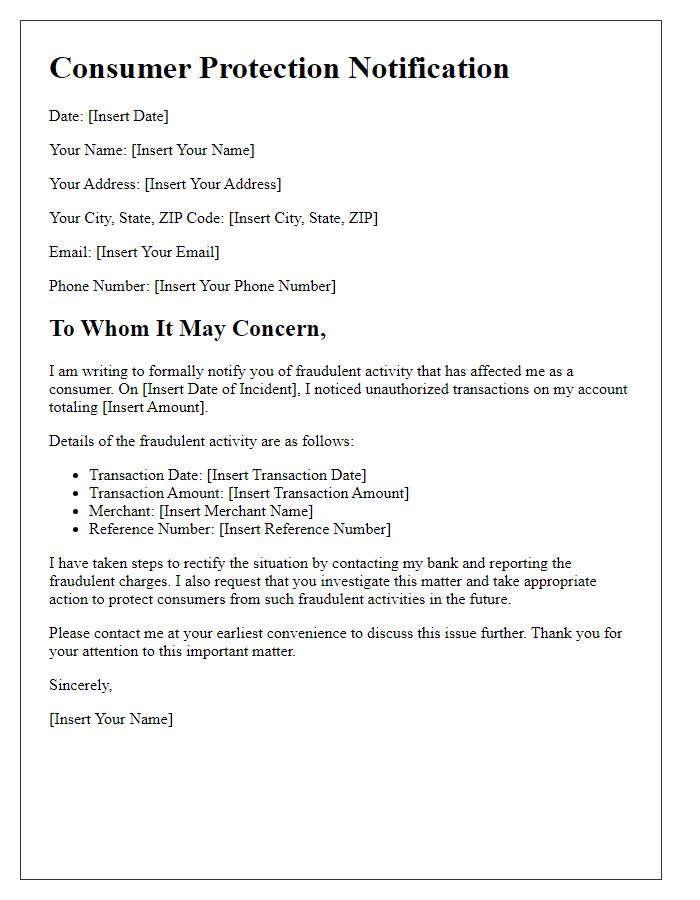
Letter template of consumer protection alert regarding defective products
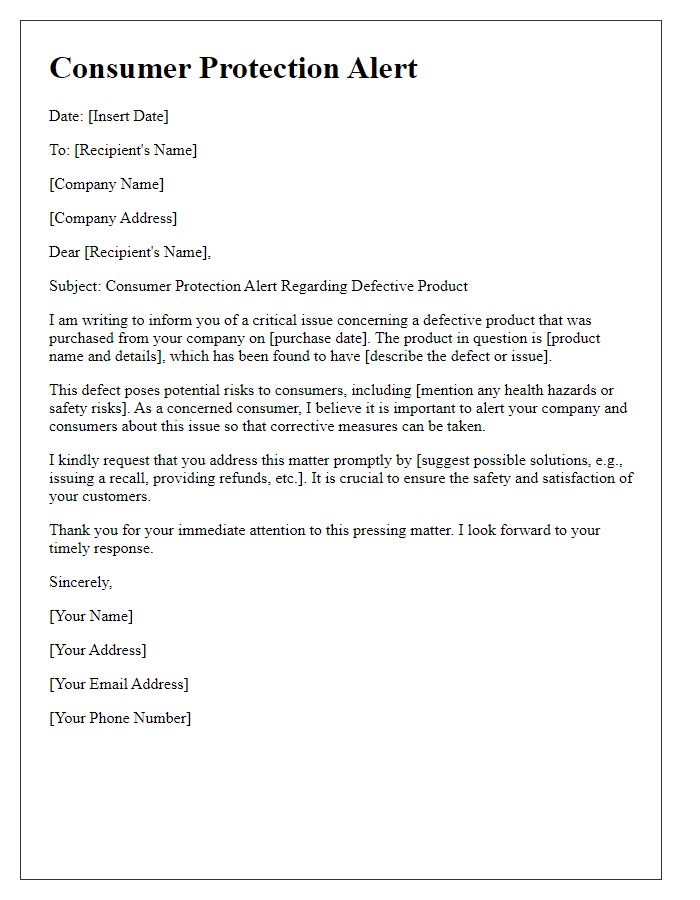
Letter template of consumer protection notice for unfair business practices
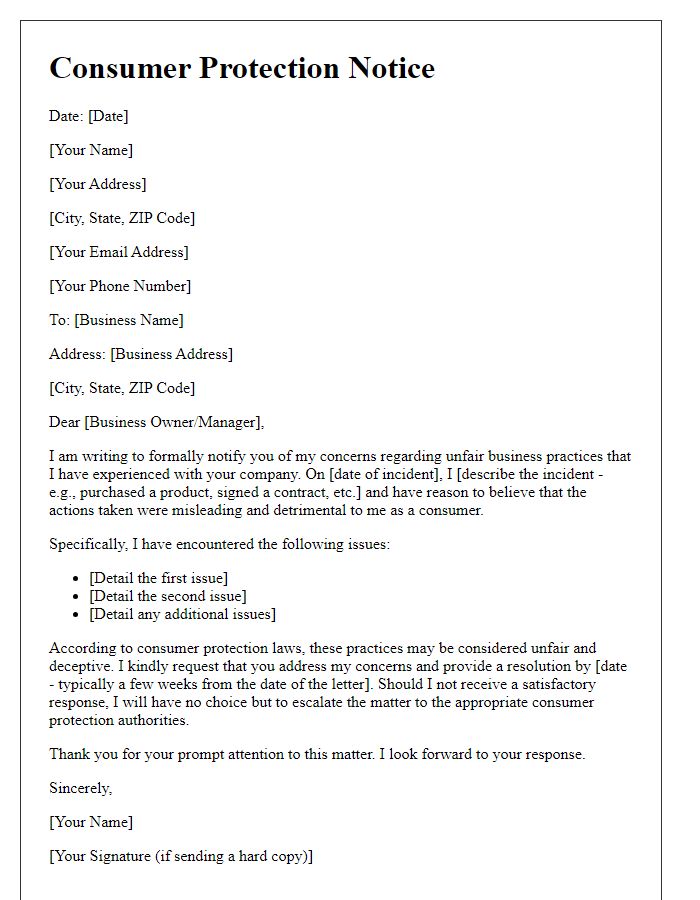
Letter template of consumer protection update for misleading advertisements
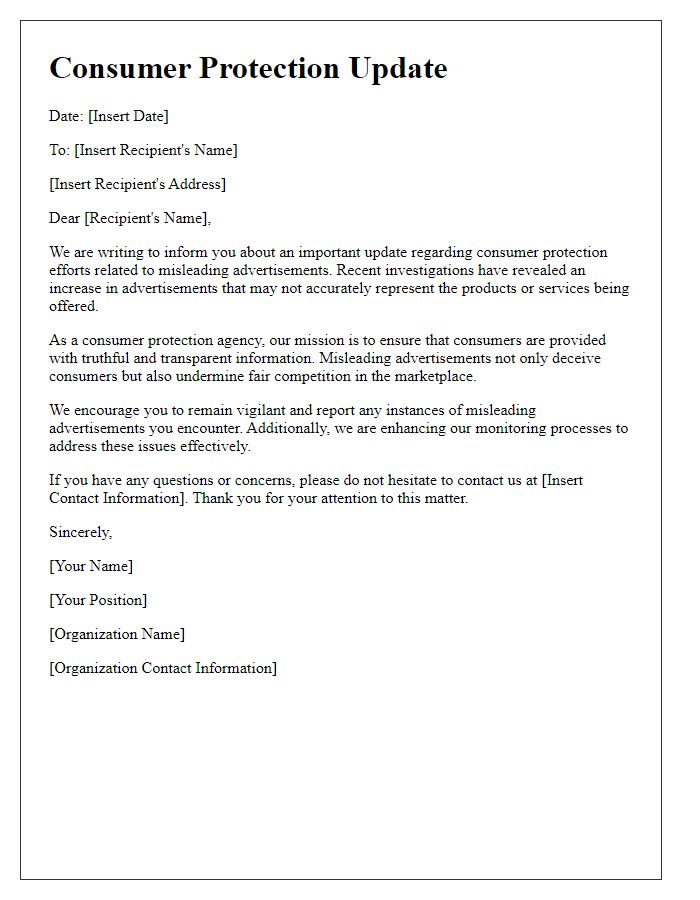
Letter template of consumer protection communication for recall announcements
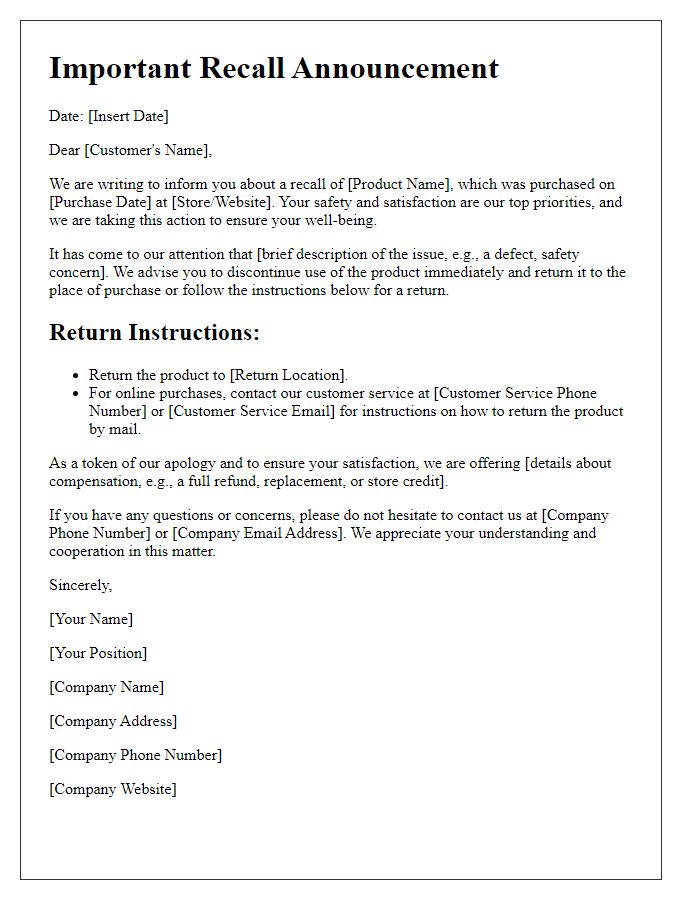
Letter template of consumer protection statement on data privacy concerns
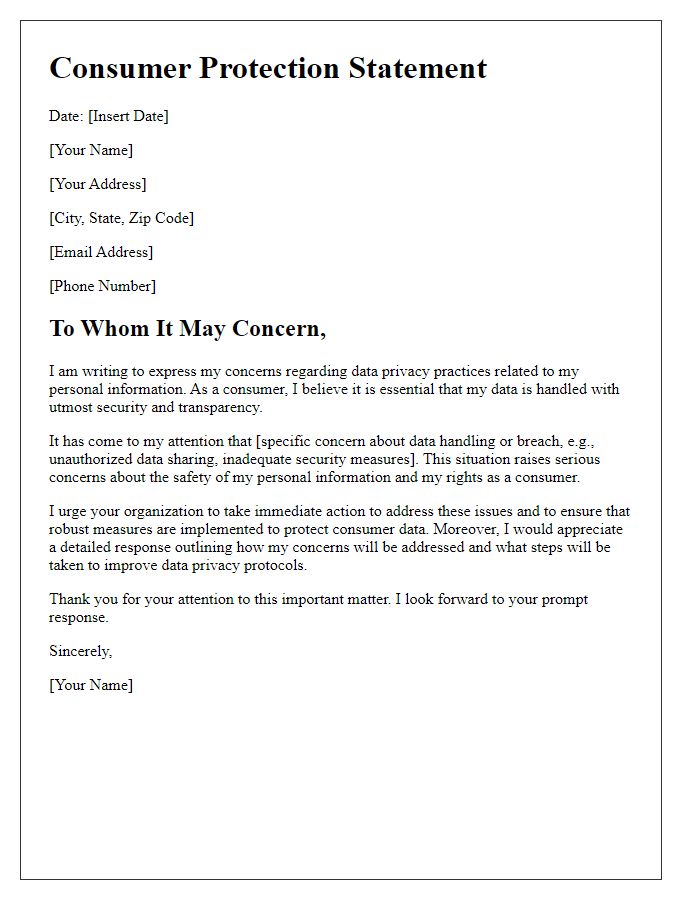

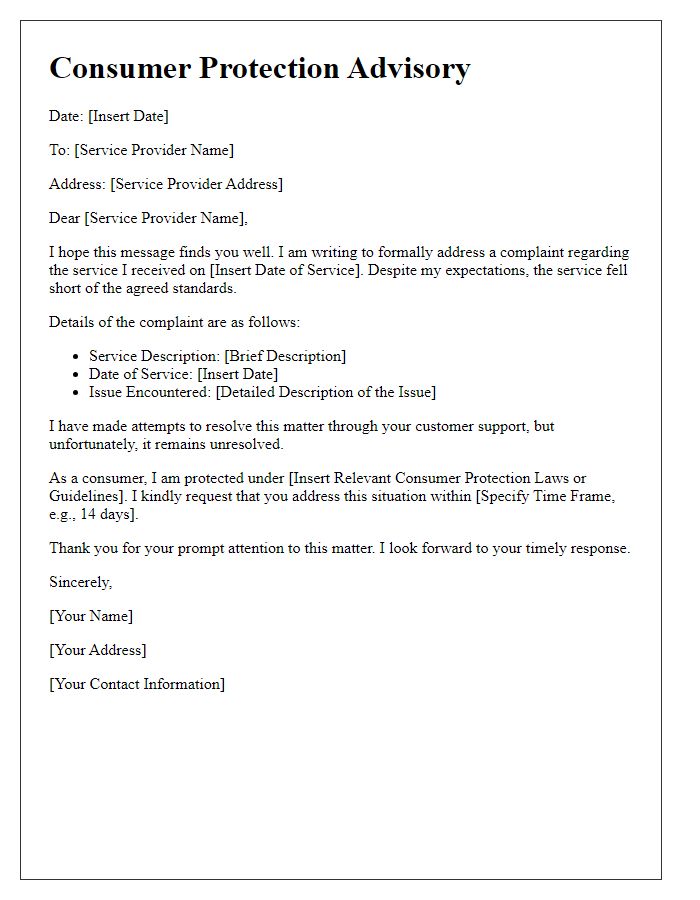
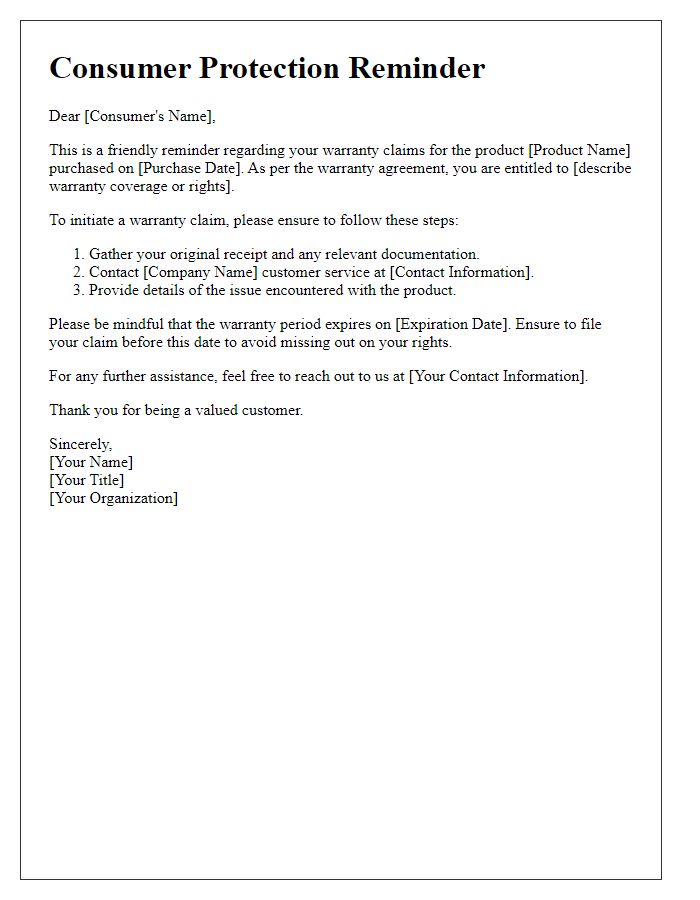
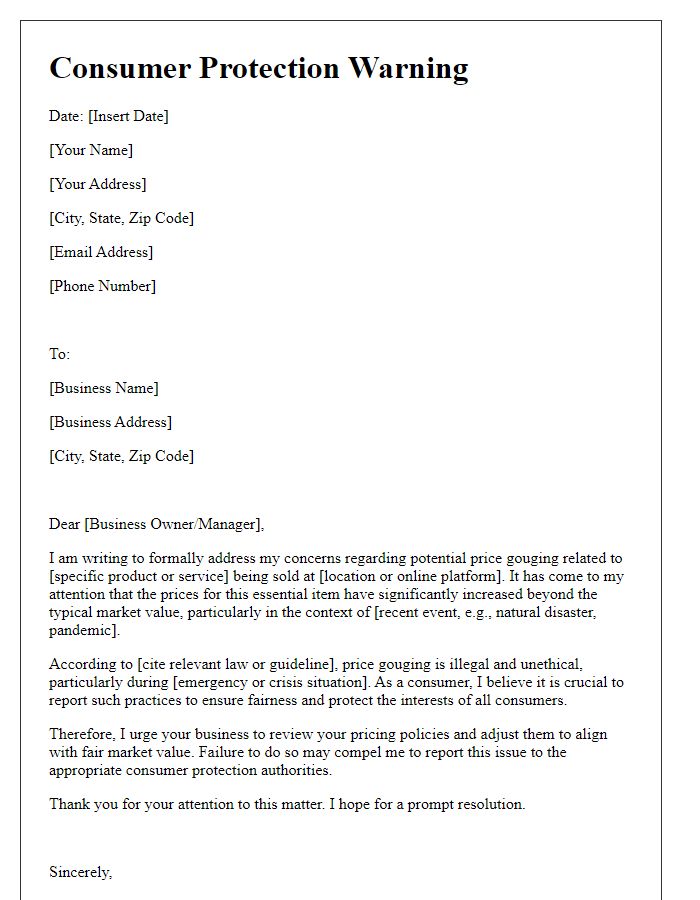
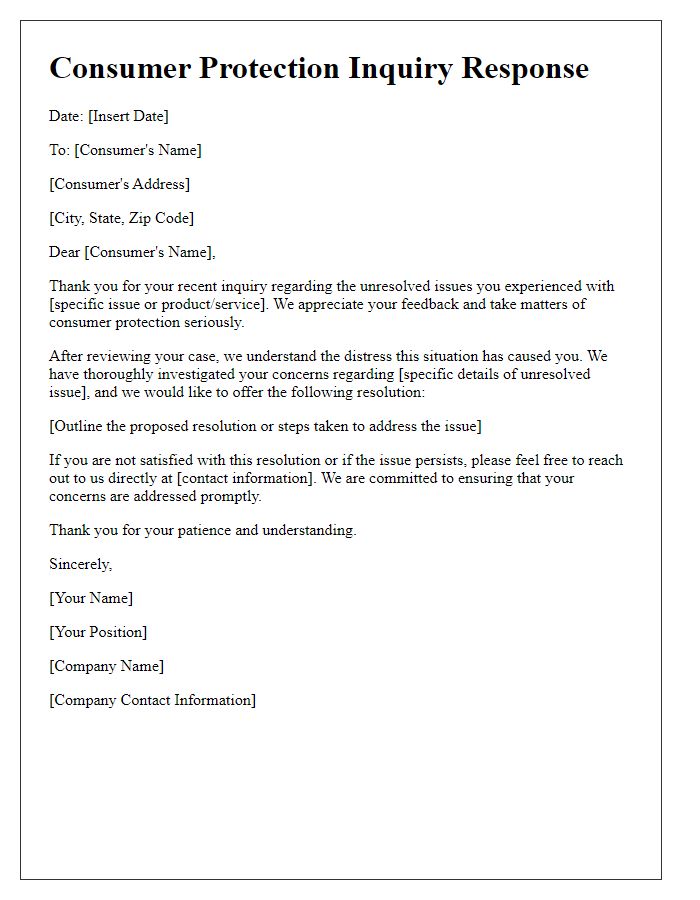


Comments